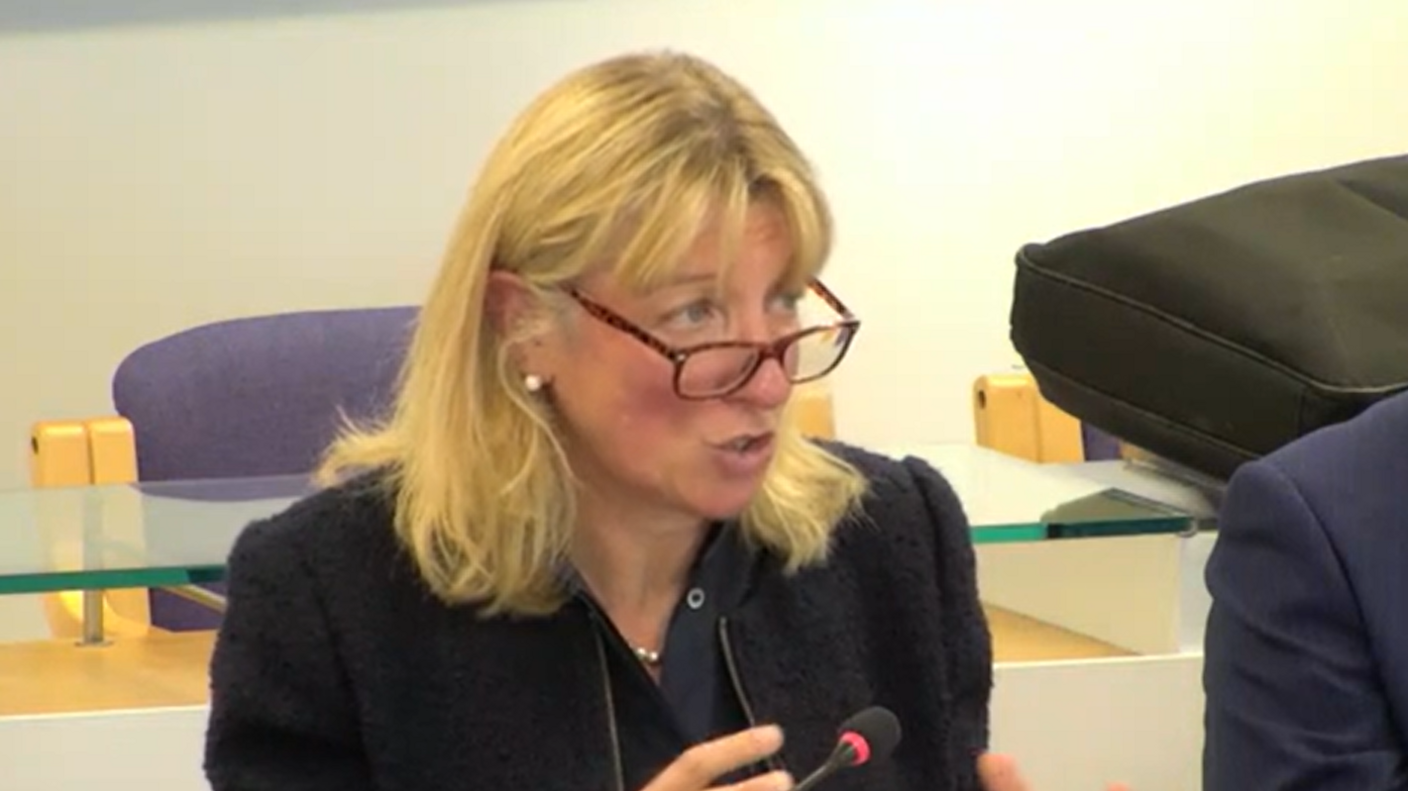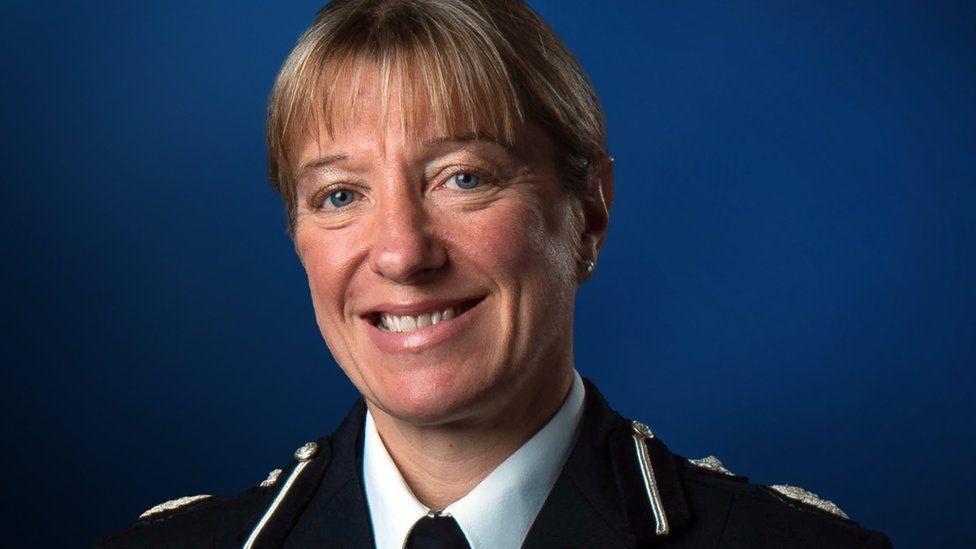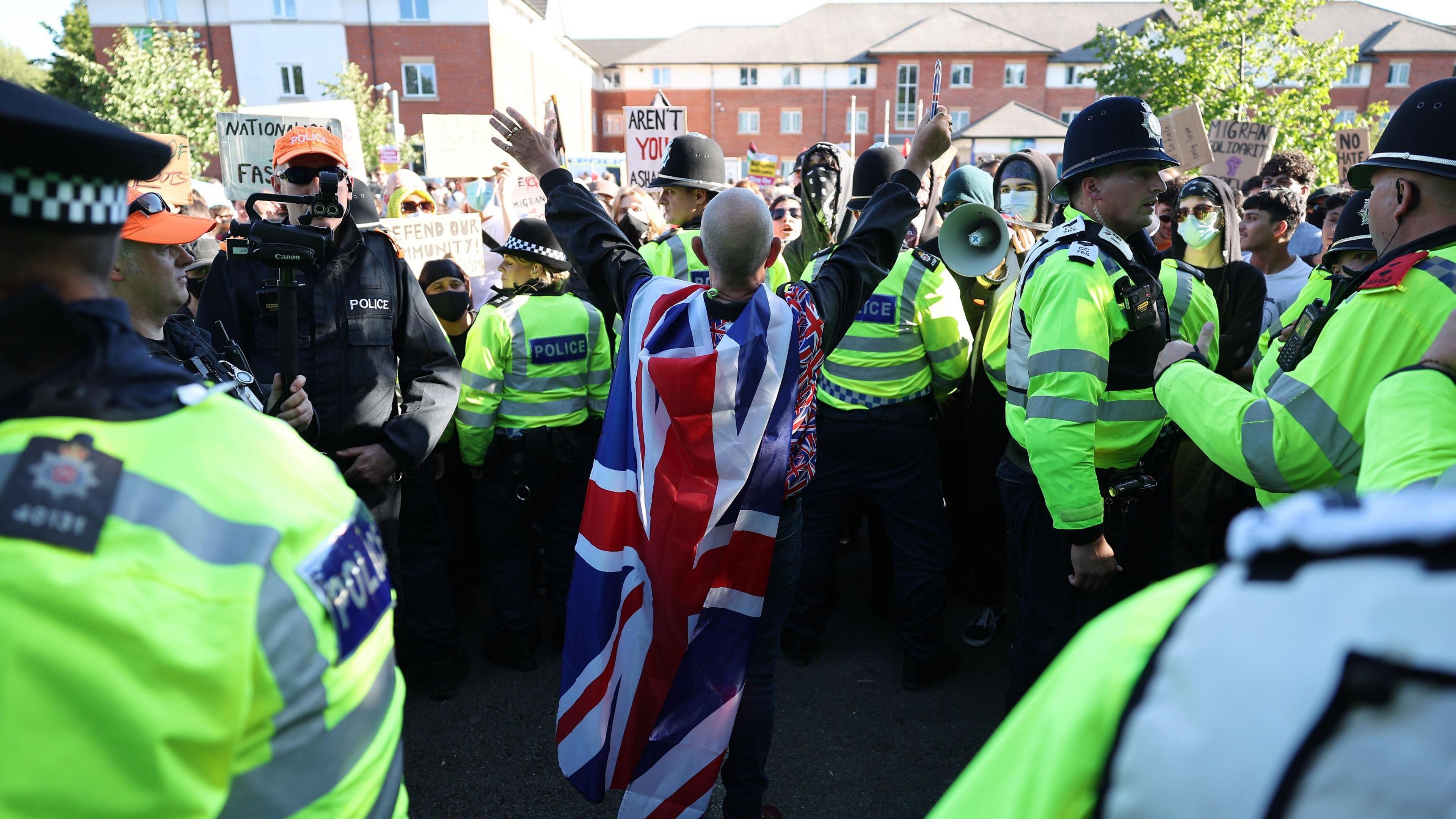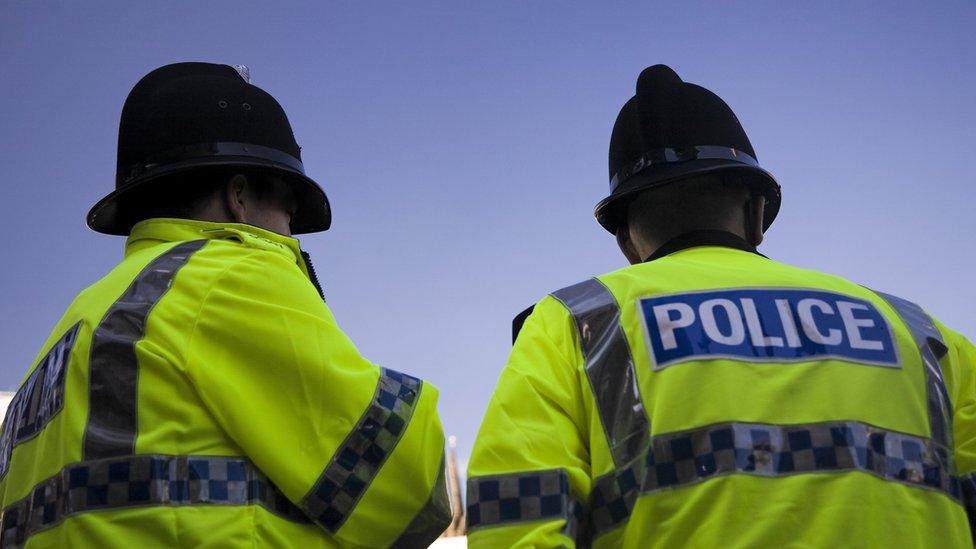Seven takeaways from police chief confirmation hearing

Jo Shiner answered questions from the Sussex Police & Crime Panel at her confirmation hearing
- Published
As Jo Shiner bids to be reappointed as chief constable of Sussex Police she faced questions from the Sussex Police and Crime Panel.
Mrs Shiner had been chief constable in Sussex since June 2020. She retired on 31 August but plans to rejoin the force after a short break under the Retire and Rejoin scheme.
The scheme is open to all police officers in England and Wales regardless of rank and is designed to retain skills, knowledge and experience.
A decision on her reappointment will be announced on 1 October.
1. In 32 years her job description hasn't changed
Mrs Shiner recounted walking along the street as a trainee officer with her tutor 32 years ago.
He told her policing had three goals: “To look after the good people, to lock up the bad people and to do the right thing.”
She said throughout her career those priorities have not changed and as chief constable she would continue to prioritise “protecting our communities, catching criminals and delivering an outstanding service”.
2. Police work in an increasingly complex landscape
While the goals may not have changed, Mrs Shiner said it was an "increasingly complex landscape that we police in" in terms of the workforce, our communities and our society.
She described society as "unsettled, even angry in some areas".
She also said “copious amounts” of video recording on phones shared on social media and on officer body-worn cameras means “the lens on policing has changed beyond all recognition”.
But she added it also offered “the greatest opportunity to scrutinise, to learn from but also to celebrate the great work of our frontline officers”.
When asked about her most significant achievement, she said: “I do believe we have managed to forge a culture and a really productive pace at which we’re able to recruit the right people, we’re able to train the right skills, we’re able to respond really flexibly to what is happening within our communities and what’s happening nationally."
She said Sussex Police has a waiting list of people wanting to become officers.
3. Low morale is down to low funding
Mrs Shiner said she “wasn’t surprised” when a national survey found 90% of staff said their morale was with low or very low because Sussex Police is one of the lowest funded forces in the country.
She said: “That makes a huge difference to workloads. It makes a huge difference to the pressures that our officers and our staff find themselves under.”
She said the difference in funding between Sussex Police and other similar forces was equal to almost 1,000 officers.
She said introducing artificial intelligence to do some time-consuming tasks like redaction of court documents would help to relieve workloads and improve efficiency.
4. Road safety is a top personal priority
Mrs Shiner told councillors she gets as much contact from the public about road safety as she does about serious organised crime, drugs county lines and serious sexual offences.
She said top issues include anti-social driving, speeding, using mobile phones while driving and e-scooters.
She said: “Road safety is really important to me. Many more people die or are seriously injured on our roads than in most other areas of policing and yet it’s kind of accepted by society that that’s OK. And of course it’s not OK, particularly if you’re one of those families, like my own, who is affected by it.”
She said reducing accidents will “always remain dear to my heart” but added “sadly, that number is not moving much” and that was increasingly down to “people not taking responsibility when they get behind the wheel”.
She said deaths and serious injuries from e-scooters were also increasing nationally.
In her role as chief constable Mrs Shiner was National Police Chiefs Lead for Road Safety.
5. Drug driving is 'biggest concern'
Mrs Shiner said the increase in drug driving is now her “biggest concern”.
She said: “It worries me how many young people are using recreational drugs without realising how long they stay in their system and what the impact on their driving is.”
She told the panel she remains “passionate” about reducing road crime but thinks technology in vehicles that prevents someone driving while under the influence is needed in addition to enforcement.
6. Sussex is a wonderful but challenging place
She told the panel about the range of challenges her officers and staff deal with in Sussex.
She said that Sussex has the "second largest airport in the county, we've got 140 miles of coastline which is sometimes a challenge" and that the county was "super rural".
“There’s also the complexity of deprivation alongside Brighton and Hove which is one of the most visited places in the country – rightly so, it’s an amazing place – but it does take some really complex policing sometimes," she added.
She said there is also a lot of work done with the Regional Organised Crime Unit and a dedicated team for tackling county lines exploitation.
7. Chief constables must still be on the front line
Mrs Shiner said it was important chief constables don’t “sit in ivory towers” and that “old fashioned street craft” policing must be passed down to new recruits.
She said she remains a "fully operational frontline officer" and regularly goes out on patrol and takes young officers out for a walk.
She said: “I want to really make sure they understand how to start up a conversation, how to talk to people even when they’re reluctant to do so.”
She said strong community relationships were the key to successful policing.
Follow BBC Sussex on Facebook, external, on X, external, and on Instagram, external. Send your story ideas to southeasttoday@bbc.co.uk, external or WhatsApp us on 08081 002250.
Related topics
Related stories
- Published9 September 2024

- Published13 August 2024

- Published30 January 2024
